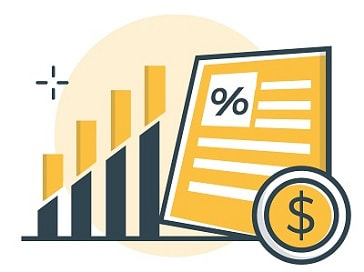Compare Interest Rates
Compare New Zealand interest rates offered by all major financial providers and products. Our research experts publish the latest interest rates to help you compare and save on home loans, credit cards, personal loans, car loans, bank accounts and more.
Updated 24 February 2022
Compare New Zealand interest rates offered by all major financial providers and products. Our research experts publish the latest interest rates to help you compare and save on home loans, credit cards, personal loans, car loans, bank accounts and more.
Compare New Zealand interest rates offered by all major financial providers and products. Our research experts publish the latest interest rates to help you compare and save on home loans, credit cards, personal loans, car loans, bank accounts and more.
Loans
Residential Home Loans
Other Loans
Business & Everyday Banking
Savings & Everyday Banking
Credit Cards
Business Loans & Overdrafts
Interest Rate FAQs
Who controls interest rates?
The official interest rate (OCR) is set by the Reserve Bank of New Zealand (RBNZ), the country’s central bank. Throughout the year, the RBNZ analyses the state of the New Zealand economy and adjusts the OCR up, down, or leaves it unchanged. Banks and lenders set their interest rates based on the RBNZ’s OCR.
Why do interest rates change?
The OCR is one of the most influential tools the RBNZ can use to steer the New Zealand economy in the right direction. It adjusts the OCR to keep inflation low or stimulate the economy, depending on how the economy is performing. For example, if New Zealand is underperforming economically, the RBNZ may lower the OCR to encourage businesses and people to borrow (with cheaper interest rates) and spend big. Alternatively, if the economy is booming, the RBNZ may want to increase the OCR to dampen economic growth and encourage prices for goods and services to drop.
Why do different banks offer different interest rates?
The interest rate you pay depends on the loan type and the risk you pose to the bank. A fall in the OCR may mean banks drop their mortgage interest rates, but this is not always the case. For some products like personal loans or car finance, which are relatively higher risk compared to a home loan, a move in the OCR won’t necessarily affect the interest rate charged. Importantly, banks have a huge overhead cost (branches, staff, marketing) which need to be paid for. Because of this, a slight drop in the OCR doesn’t mean loan interest rates drop by the same amount.
Can interest rates fall to 0%?
With the events of 2020, the OCR fell to 0.25%. Other countries, such as Japan, Denmark and Switzerland, all have negative interest rates. It remains to be seen if New Zealand's OCR would drop below 0%, but anything is possible. However, banks and lenders would still charge above 0% for home and personal loans as they need to make money from lending.
Will interest rates increase?
The RBNZ has suggested that for the next few years, interest rates will stay low as re-starting the economy is prioritised over curtailing inflation. For this reason, it’s unlikely interest rates will rise significantly in the short term.
How can I find the best interest rate?
Always compare interest rate deals before signing up to any loan or credit product. So many people overpay by not shopping around. MoneyHub’s guides compare the best interest rates for a range of products, including personal loans, car loans, credit cards and bank accounts.
How much interest will I pay?
This depends on the size of your loan, the interest rate, and how long it takes you to repay the balance. Our calculators help show you what interest costs you’ll pay:


